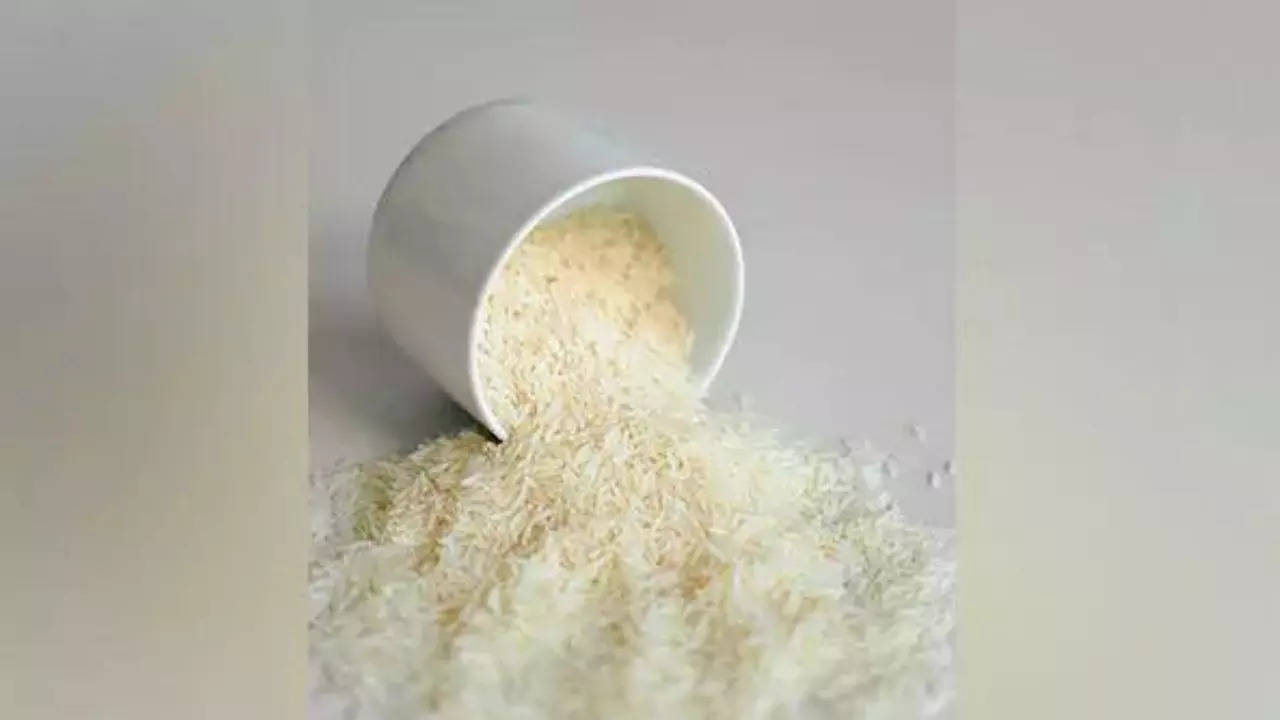NEW DELHI: The government is closely monitoring the rice situation in the domestic as well as international markets on weekly basis and it can increase the percentage share in global rice trade when favourable conditions arise, Parliament was informed on Wednesday.
India has banned export of broken and non-basmati white rice in view of uncertainty around rice production here and other rice producing countries due to geopolitical scenario, El Nino sentiments and extreme climatic conditions to check domestic prices and ensure adequate availability in the market here.
“The government is closely monitoring the rice scenario in the domestic market as well as in international forum on weekly basis and the government can increase the percentage share in global rice trade when favourable conditions arise,” minister of state for commerce and industry Anupriya Patel said in a written reply to Lok Sabha.
India was the largest rice exporting country in the world from 2018 to 2022 followed by Thailand and Vietnam.
Rice export from India was 22.24 million tonne in 2022, which accounts for 40.63 per cent of the world’s rice exports.
Export of broken rice has been prohibited from September 2022 and non-basmati white rice from July this year. Export of basmati and parboiled non-basmati rice is continuing.
Replying to another question, Patel said that agriculture exports during April-September 2023 declined 11.6 per cent over the same period last year.
“Besides the decline in international prices, which has impacted per unit value realizations, restrictions imposed on export of essential food products, such as wheat, non-basmati rice, sugar and onions, to ensure domestic food security, have also contributed to decline in value of agriculture exports in the current year,” she said.
Further, in a reply to a question on free tarde agreements (FTAs), she said India has signed 13 trade pacts with its trading partners.
It is engaged in negotiations for FTA with the UK; the European Union; Peru; Iceland, Norway, Liechtenstein and Switzerland (EFTA countries); Sri Lanka and Oman, she added.
India has banned export of broken and non-basmati white rice in view of uncertainty around rice production here and other rice producing countries due to geopolitical scenario, El Nino sentiments and extreme climatic conditions to check domestic prices and ensure adequate availability in the market here.
“The government is closely monitoring the rice scenario in the domestic market as well as in international forum on weekly basis and the government can increase the percentage share in global rice trade when favourable conditions arise,” minister of state for commerce and industry Anupriya Patel said in a written reply to Lok Sabha.
India was the largest rice exporting country in the world from 2018 to 2022 followed by Thailand and Vietnam.
Rice export from India was 22.24 million tonne in 2022, which accounts for 40.63 per cent of the world’s rice exports.
Export of broken rice has been prohibited from September 2022 and non-basmati white rice from July this year. Export of basmati and parboiled non-basmati rice is continuing.
Replying to another question, Patel said that agriculture exports during April-September 2023 declined 11.6 per cent over the same period last year.
“Besides the decline in international prices, which has impacted per unit value realizations, restrictions imposed on export of essential food products, such as wheat, non-basmati rice, sugar and onions, to ensure domestic food security, have also contributed to decline in value of agriculture exports in the current year,” she said.
Further, in a reply to a question on free tarde agreements (FTAs), she said India has signed 13 trade pacts with its trading partners.
It is engaged in negotiations for FTA with the UK; the European Union; Peru; Iceland, Norway, Liechtenstein and Switzerland (EFTA countries); Sri Lanka and Oman, she added.
